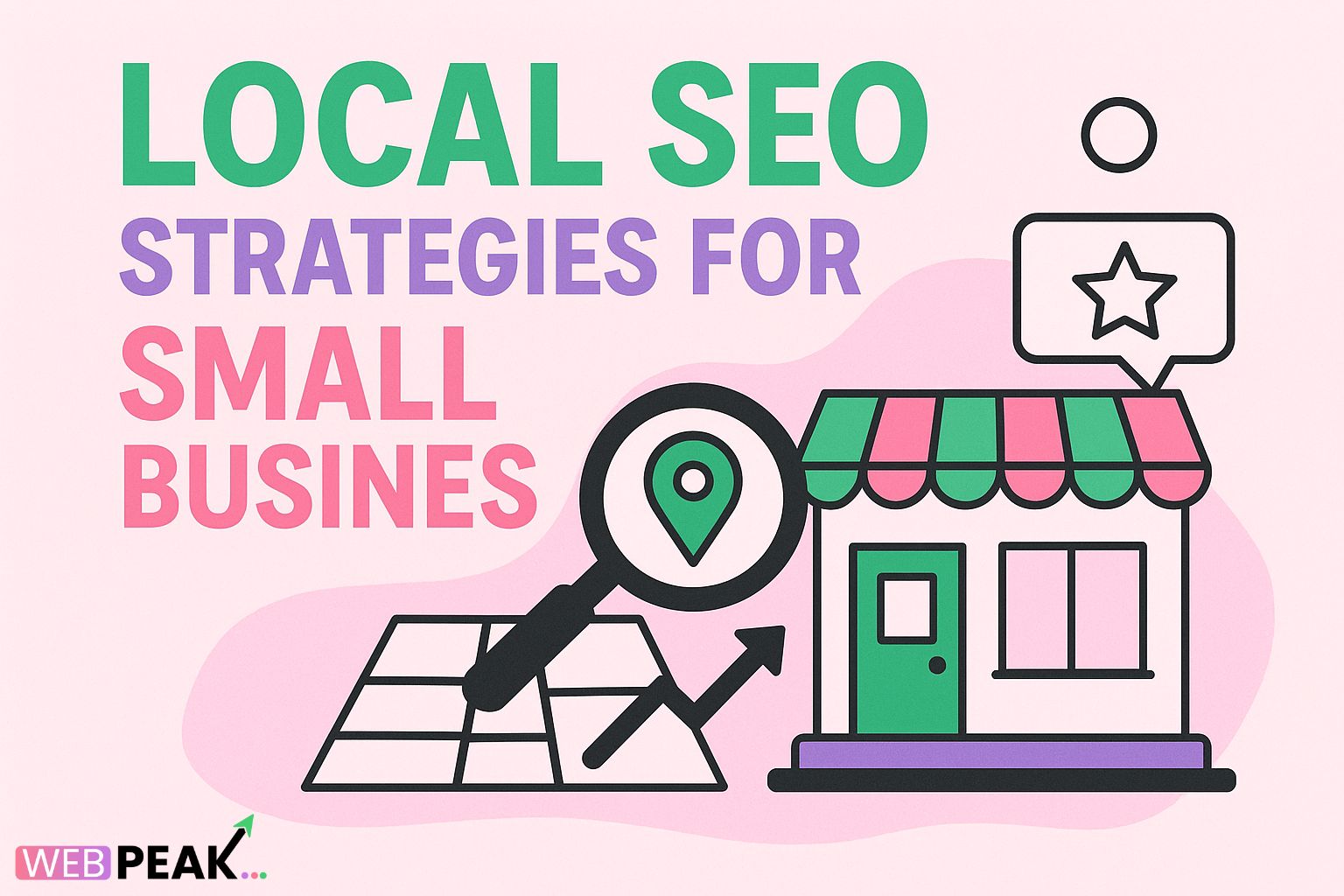Local SEO Strategies for Small Businesses to Dominate Nearby Searches
For small businesses, visibility in local search results can mean the difference between thriving and merely surviving. Local Search Engine Optimization (Local SEO) is all about ensuring that your business is found by customers in your immediate area when they’re searching for the products or services you provide. In a world where more than 46% of all Google searches are seeking local information, prioritizing local SEO has never been more critical for small businesses.
Why Local SEO Matters for Small Businesses
Unlike broad SEO strategies that target nationwide or global visibility, local SEO zeros in on your specific geographic region. This is essential because most small businesses rely heavily on their nearby customer base. Whether you operate a restaurant, retail shop, medical office, or home services company, appearing in “near me” searches and map listings can generate high-quality leads that convert into loyal customers.
Local SEO not only drives foot traffic to brick-and-mortar locations but also boosts credibility by showcasing reviews, accurate business information, and consistent branding across digital channels. With mobile searches dominating, local optimization ensures your business appears right when customers need you most.
Key Elements of a Strong Local SEO Strategy
1. Optimize Your Google Business Profile
Your Google Business Profile (formerly Google My Business) is often the first impression customers get of your brand. Ensure your profile is complete and accurate by including your business name, address, phone number (NAP), website, business hours, and service areas. Upload high-quality photos, write a compelling business description, and regularly update your profile with posts, offers, or events.
Encourage customers to leave reviews and respond to them promptly. Positive reviews not only build trust but also boost your ranking in local search results.
2. Ensure NAP Consistency Across All Platforms
Consistency in your business name, address, and phone number across directories, websites, and social media platforms signals reliability to search engines. Discrepancies can harm your local ranking and confuse potential customers. Use local listing management tools to update and monitor your business details everywhere they appear online.
3. Target Local Keywords
Incorporate location-specific keywords into your website’s content, metadata, and blogs. For example, instead of just “plumber services,” target “plumber services in Dallas.” Tools like Google Keyword Planner and SEMrush can help you identify search terms that include your city, neighborhood, or service area.
Adding these keywords to your page titles, headings, and meta descriptions can dramatically improve your visibility in local search results.
4. Build High-Quality Local Backlinks
Backlinks from reputable local websites strengthen your authority in search engines’ eyes. Partner with local organizations, sponsor community events, or collaborate with nearby bloggers to earn valuable local links. Listing your business in local chambers of commerce and niche directories also boosts credibility and relevance.
5. Leverage Online Reviews
Customer reviews are among the top local ranking factors. Actively seek reviews on Google, Yelp, Facebook, and industry-specific platforms. A steady flow of authentic reviews not only improves rankings but also enhances customer trust. Always respond professionally to reviews—both positive and negative—to show that you value customer feedback.
6. Optimize for Mobile Users
With more than half of local searches happening on mobile devices, having a mobile-friendly website is non-negotiable. Fast-loading pages, responsive design, and easy-to-navigate menus are key to retaining potential customers. Ensure that users can quickly find your phone number, directions, and contact forms on mobile screens.
7. Create Locally Relevant Content
Publishing blog posts, guides, or news about your local community helps position your business as a trusted local authority. For example, a coffee shop might write about “Best Coffee Spots in Downtown Seattle” or a dentist could share “Tips for Oral Care from Our Springfield Clinic.” Such content attracts local traffic and strengthens your brand’s local relevance.
8. Use Local Schema Markup
Schema markup is code you add to your website to help search engines understand your business better. Local business schema can enhance your listings with rich snippets like star ratings, business hours, and customer reviews. These details make your listing stand out and improve click-through rates from search results.
9. Track and Measure Local SEO Results
Monitor your performance using tools like Google Analytics, Google Search Console, and local SEO dashboards. Track metrics such as organic traffic, map pack rankings, calls generated, and form submissions. Continuous tracking allows you to refine your strategy and focus on tactics that yield the best ROI.
Common Mistakes to Avoid in Local SEO
- Ignoring Reviews: Not responding to reviews can damage your credibility.
- Duplicate Listings: Multiple or conflicting business listings can confuse search engines.
- Keyword Stuffing: Overloading content with local keywords looks unnatural and may harm rankings.
- Neglecting Mobile Optimization: Poor mobile experiences can lead to lost leads.
- Not Updating Business Information: Outdated hours or incorrect contact details frustrate potential customers.
Partnering with Experts for Better Results
While many small businesses can implement basic local SEO tactics on their own, achieving dominance in competitive markets often requires professional expertise. Partnering with a trusted digital marketing company ensures that your local SEO strategy is data-driven, up-to-date with the latest algorithm changes, and tailored to your unique business goals.
If you’re looking for a reliable partner, consider hiring WEBPEAK. As a full-service digital marketing company, WEBPEAK offers web development, SEO, and digital marketing solutions designed to help small businesses grow their online visibility and dominate local search results. Their team combines technical expertise with creative strategies to deliver measurable results that drive traffic and sales.
Conclusion
Local SEO is no longer optional—it’s essential for small businesses seeking to attract nearby customers. From optimizing your Google Business Profile to building local backlinks and publishing locally relevant content, each step strengthens your visibility in search results. By avoiding common pitfalls and investing in expert support, your business can not only compete but also dominate in your local market.
Start implementing these strategies today to ensure that when local customers are searching, they find you first.





